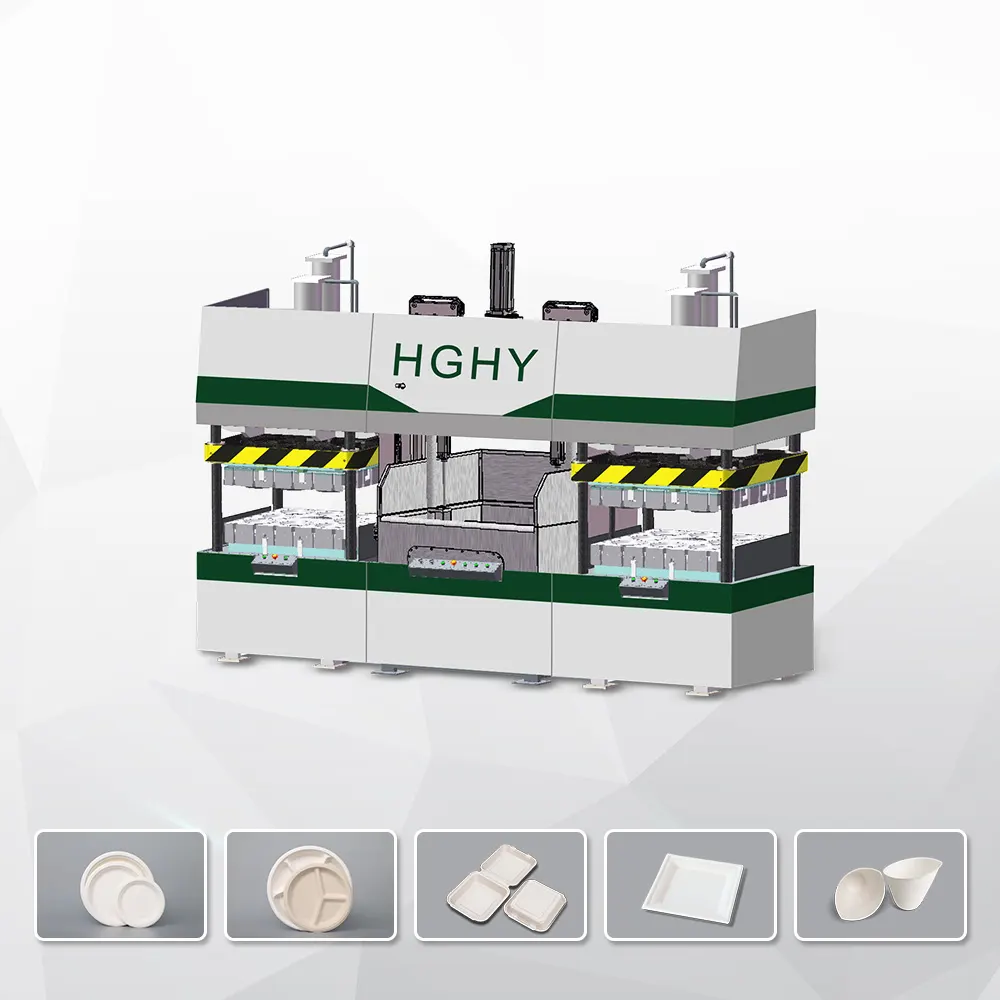Plastic bans accelerate market transformation. Capture the eco-packaging boom now.
1. Market Overview: Strong Demand from Food & Beverage Industry
Australia is one of the leading consumer markets in the Asia-Pacific region, with a rapidly growing food delivery and takeaway industry. The market size of food delivery alone has surpassed AUD 9.5 billion, and Australians are among the top global coffee consumers. This creates a massive demand for food-grade packaging.
With single-use plastic bans now fully enforced nationwide (starting in 2022), eco-friendly pulp molded packaging has quickly emerged as a preferred alternative, especially in these sectors:
☕ Coffee chains: pulp molded cup lids, cup carriers, stirrers
🍱 Food delivery platforms: compostable lunch boxes, bowls, burger clamshells
🥡 Restaurants & supermarkets: fruit trays, ready-to-eat food packaging
📈 Market Size
In 2024, Australia’s food packaging market is estimated at USD 1.9 billion.
The pulp molded food packaging segment is projected to grow at a 5–7% CAGR from 2025 to 2034.
2. Growth Drivers
✅ Plastic bans: Regulatory momentum drives demand
Since 2022, states like Queensland and New South Wales have banned single-use plastic packaging.
Businesses are being forced to switch to compostable, biodegradable packaging solutions.
✅ Booming food delivery and coffee culture
Food delivery platforms (UberEats, DoorDash) now handle 100+ million orders annually.
Australians consume 3kg of coffee per capita annually, fueling demand for paper cups, lids, and trays.
✅ Eco-conscious consumers
86% of Australian consumers prefer sustainable packaging when choosing food and beverage products.
Major restaurant chains are proactively adopting eco-packaging to improve their green image.
3. Industry Landscape: Limited Local Production Capacity
🏗 Limited domestic manufacturing
Most pulp molded food packaging products in Australia are imported (primarily from China and Southeast Asia).
Local producers are small-scale and often rely on semi-automatic production lines, making it difficult to meet large-scale, fast-turnaround orders from food delivery companies.
🌏 Key demand drivers
Global fast-food chains (McDonald’s, KFC, Starbucks)
Supermarkets (Coles, Woolworths)
Independent coffee shops and restaurants
4. Investment Opportunities
📈 Establishing localized production
Setting up automated pulp molding production lines in Australia can fill the gap in the market and significantly reduce import costs and delivery times.
💰 Focus on high-margin products
The market prefers aesthetically designed, oil-resistant, and heat-resistant premium food containers, requiring advanced hot-press pulp molding technology.
🌱 Leverage government support
The Australian government provides green manufacturing grants and low-interest loans for sustainable projects, reducing initial investment risks.

Pulp molding Tableware Making Machine
New tech created for new market, has been selling more than 100 units since its launch. Suitable for the production of plate, fast food box, bowl, cup and other environmental protection paper fiber tableware products.
Platen Size: 980 x 940 mm
1 Forming 2 Hotpressing
International Branded Robot Auto Trimming

Sugarcane Bagasse Tableware Making Machine
The Sugarcane Bagasse Tableware Making Machine uses the fiber residue left after extracting sugarcane juice to make bagasse tableware such as biodegradable plates, bowls and cups.
5. Challenges & Solutions
| Challenges | Solutions |
|---|---|
| 🇦🇺 High labor and operational costs | Adopt fully automated production lines to reduce labor dependency. |
| 📦 Raw material cost fluctuations | Secure local recycled paper pulp supply contracts. |
| 🏭 Lack of technical expertise | Partner with global leading equipment suppliers for training and support. |
| 💸 Competition from low-cost imports | Offer local production + fast delivery as a market advantage. |
How a Pulp Molding Machine Works?
Choose HGHY
HGHY stands as a pioneering high-tech enterprise in China, committed to the research, development, and production of paper molding equipment. With close to three decades of practical experience in project management, our goal is to build cutting-edge machinery. Our service footprint extends across over 60 countries and regions worldwide, having successfully delivered over 1,000 sets of equipment and served more than 10,000 satisfied customers.
No experience required - Helps You Build a Factory
HGHY offers personalized, complimentary consulting services to clients. We assist in designing and planning your entire factory layout, tailor products to your specific requirements, and dispatch engineers to your country for equipment installation and troubleshooting. Additionally, we provide training and ongoing technical support, all backed by a lifetime service guarantee for HGHY equipment.
Our Cases
The invention and development of disposable tableware reflect advancements in technology, cultural shifts, and heightened environmental awareness. From the initial simple paper utensils to the diverse range of eco-friendly options available today, the disposable tableware industry continues to adapt to new market demands and environmental challenges.



